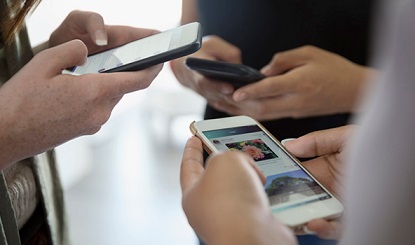 #Boycotters is a hashtag that is being used to try to force three leading Moroccan brands to lower their prices. The boycott is a fascinating social response to something that has traditionally been solved by individuals. Don’t like the price? Buy a cheaper brand. But the boycott may perhaps signal that these brands are ones people still want to buy.
#Boycotters is a hashtag that is being used to try to force three leading Moroccan brands to lower their prices. The boycott is a fascinating social response to something that has traditionally been solved by individuals. Don’t like the price? Buy a cheaper brand. But the boycott may perhaps signal that these brands are ones people still want to buy.
The unprecedented social movement to boycott goods from leading national companies marketing milk, mineral water and gasoline is reported to have impacted share prices although the actual financial impact is not clear. The Moroccan brand boycott is unusual in that many people have grouped together to target specific brands for economic reasons. Siham Malek, Managing Director, Kantar Insights, Morocco, tells me that prices have not actually increased for several years and no one is quite sure how the boycott started.
Over the years, from the Arab Spring to #MeToo, we have become accustomed to the power of social media to effect changes in society. And we have seen the same power leveled at specific brands whenever they are perceived to have done something wrong. It is reported 200,000 people did delete the Uber app from their phones in response to #DeleteUber but probably far fewer than tweeted the hashtag. But, of course, in some cases the social backlash can provoke its own backlash. And, as the New York Times article notes, offline behavior may not follow online word of mouth.
The Morocco World News article criticizes the targeted companies for the lack of an effective social media response. The water brand, Eaux Minérales d’Oulmès, is rumored to have responded by dropping its prices and as a means to prevent the boycott spreading to the owning company’s wider set of brands. But what might the right response be?
The fact that people are boycotting leading brands instead of simply buying cheaper ones makes me suspect that there is a strong emotional connection to the brands involved. People are making a sacrifice to walk away. The key question to my mind is how much people will miss the brands they are boycotting? Are they easily substitutable? How much do people think they are giving up?
If the brands are strong then the best response for them may be to stand their ground, hold prices and explain simply remind people of the deep connection they have with the brand. By the sound of it, the chance to respond effectively in social media may have passed, so perhaps non-digital advertising would provide some insulation from the boycott campaign? But what do you think these brands should do? Please share your thoughts.


